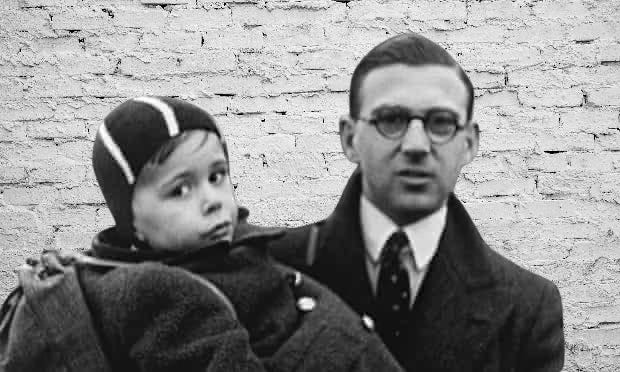He thought the papers had no value
So many times, people think their history means nothing. But it does.
We’re in low power mode for a few days due to spring break and Easter. Thanks for reading!
Nicholas Winton, a 29-year-old British stockbroker, planned a big, fun year-end vacation.
His colleagues in London would mostly be visiting family and celebrating Christmas. Winton, who had Jewish ancestry but had been baptized in the Anglican church, decided to go on a ski trip to Switzerland instead.
However, at the last minute, he had a change of plans.
This whole story takes place in 1938 — Winton was born in 1909 — and so here’s a quick history refresher on what was happening in late 1938 in Europe, and what upended his trip:
October 1-10: the Nazi annexation of the Sudetenland in Czechoslovakia,
October 30: the brutal expulsion of 17,000 Polish Jews from Germany, and
November 10: Kristallnacht, in which thousands of German Jews were beaten and arrested, and Nazis destroyed Jewish businesses and synagogues.
Against that, Winton had a friend named Martin Blake, who was working with refugees in Prague, and who asked Winton to skip the ski trip and come there instead.
Winton saw the horrible reality of life under the Nazis firsthand. War now seemed inevitable, and things looked hopeless for thousands. Back in the United Kingdom, a program called Kindertransport allowed Austrian and German Jewish children without parents to settle temporarily in the country—but there was no such program for Czechoslovakian children.
So, Winton basically created one himself.
Starting with almost no resources, headquartered in a hotel room, at a kitchen table, and ultimately out of a Prague storefront, he recruited volunteers, raised money, forged documents, bribed Gestapo agents, and compiled data on 5,000 Czech Jewish children he hoped to get out of the country.
The children’s parents gave them up—assuming, accurately in almost all cases, that they’d never see them again.
It was an incredibly difficult logistical task. Working with his mother, Winton raised money and recruited British families to serve as foster parents for the children.
Ultimately, Winton returned to England to coordinate the effort-and amazingly-to continue working at his day job on the stock exchange, since he and his mother were contributing their own money to the Czech children’s relief effort.
Starting in March 1939, Winton and his colleagues got eight trainloads of Czech children out of the country, carrying 669 children in all. Another 250 children were aboard the largest train, scheduled to leave Prague and travel through Germany itself to the North Sea on September 1, 1939.
But that was the day Germany invaded Poland and World War II began, and the train never made it. All of the children on that train are believed to have died eventually in concentration camps.
With his hopes of continuing the rescue effort dashed, Winton joined the Royal Air Force and served for the rest of the war. Afterward, he lived a fairly normal life.
He married a Danish woman, Grete Gjelstrup, and they had three children. And for five decades, Winton said nothing of what he’d accomplished on the eve of World War II. The world entirely forgot, as well.
In 1988, however, his wife came across a “long-hidden scrapbook-crammed with names, pictures, letters from families, travel documents, and notes crediting his colleagues,” according to the New York Times. She “asked for an explanation. He gave her a general idea, but said he thought the papers had no value and suggested discarding them.”
Instead, Winton’s wife gave the scrapbook to a historian. A BBC television program followed, as did other reports and films. Winton was ultimately honored by the Czech, British, American, and Israeli governments. He was knighted in 2003.
Still, he viewed comparisons between himself and people like Oskar Schindler and Raoul Wallenberg with “bewilderment and disbelief,” according to a biographer who herself had been one of the rescued children, and who was quoted in the Times.
Winton passed away in 2015 at the age of 106. I suspect that many readers in the UK will already be familiar with his name, but it may not be as well-known to others.
Besides the fact that it’s just a great story, I’m sharing it for timely inspiration.
I doubt many of us will have the chance to do something as world-historic and far-reaching as what Winton wound up doing instead of his ski trip in 1938. But if some of us look hard enough, we might find a way to turn disappointment into opportunity.
Thanks for reading! Photo fair use — an image of Winton and one of the children he rescued in 1939. During low power mode we usually skip the 7 other things section. It'll be back next week ... or maybe sooner!


What a moving story. I had not heard of him but am continually awed by the courage in these stories. Inspiring!
Thank you for using your gift and your platform to share this story and his name.